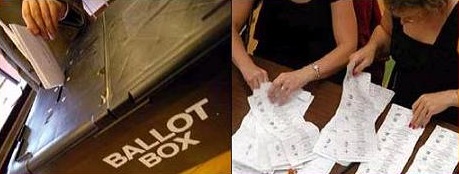Could democracy itself be a casualty of the economic crisis?

How much will electorates take from their representatives?
It’s easy to think of democracy as the natural political system for the majority of the world. It’s widely aspired to in those countries that don’t have it and even dictatorships usually feel the need to legitimise their rule through some form of elections, no matter how fraudulent they may be in reality. History tells us however that the route to democracy is not a one-way street.
Of the 27 current members of the EU, at least eleven saw democratic governments overthrown internally – by coups, revolution, civil war or the election of extremists – during the last century. Several more came close or suffered those fates in other ways.
It is true that when those events took place, democracy was neither as well embedded nor as widespread as it is now. Nonetheless, it’s hardly coincidental that the majority of occurrences were in the early 1930s, in the aftermath of the Great Depression – though not immediately after the crash.
Is there a risk that it might happen again? There probably is. That’s not to say it will happen or is even likely to but that the circumstances now make it far from impossible.
What would be needed is an angry or at least disillusioned population, a lack of faith in all the democratic options, a viable party and leader to replace it, a prime bogey for which today’s politicians can be blamed and which appears readily resolvable by extremists, and insufficient institutional loyalty or inertia in favour of the status quo.
The economic crisis provides the underlying conditions easily enough. Youth unemployment in Greece is 43% and even higher in Spain. Governments are having to cut drastically and promises previously made can no longer be kept. It is difficult in such conditions for those who have delivered them to credibly paint a rosy picture of the future. It is far easier for the whole political class to take the blame.
Where there’s been a disconnect between politicians and electorate, that becomes an even simpler message – that of a corrupt elite in it for themselves who might be elected by the people but who don’t represent them, enacting policies without popular support and delivering failure. It is the cry of both the far left, who point to politicians jumping to the tunes called by bankers, and the far right, who decry immigration, especially from muslim countries, which no-one voted for (although populist movements can easily combine both). Once the idea becomes established within enough people that there can be no solution in the existing system then extrademocratic options become viable.
Even in the years of plenty some far right parties scored significant victories, beginning with Le Pen reaching the run-off in the 2002 French presidential election. Where that’s been the case, there’s been a common theme of a high-profile and effective leader. With many parties floating around the fringes, organisation and leadership matter hugely – and extremist parties are prone to internal division and splits.
So much for the democratic route. What of risings, revolutions and coups? If anything, these form the more likely route, not least because they don’t need to wait for the electoral cycle, don’t necessarily need leadership in the same way and can take place in anticipation of events as well as in reaction to them.
In recent decades, violence has tended to go out of politics in Europe, as often happens whenliving standards are rising. Living standards are not rising now and are unlikely to for some years to come. We live in interesting times.